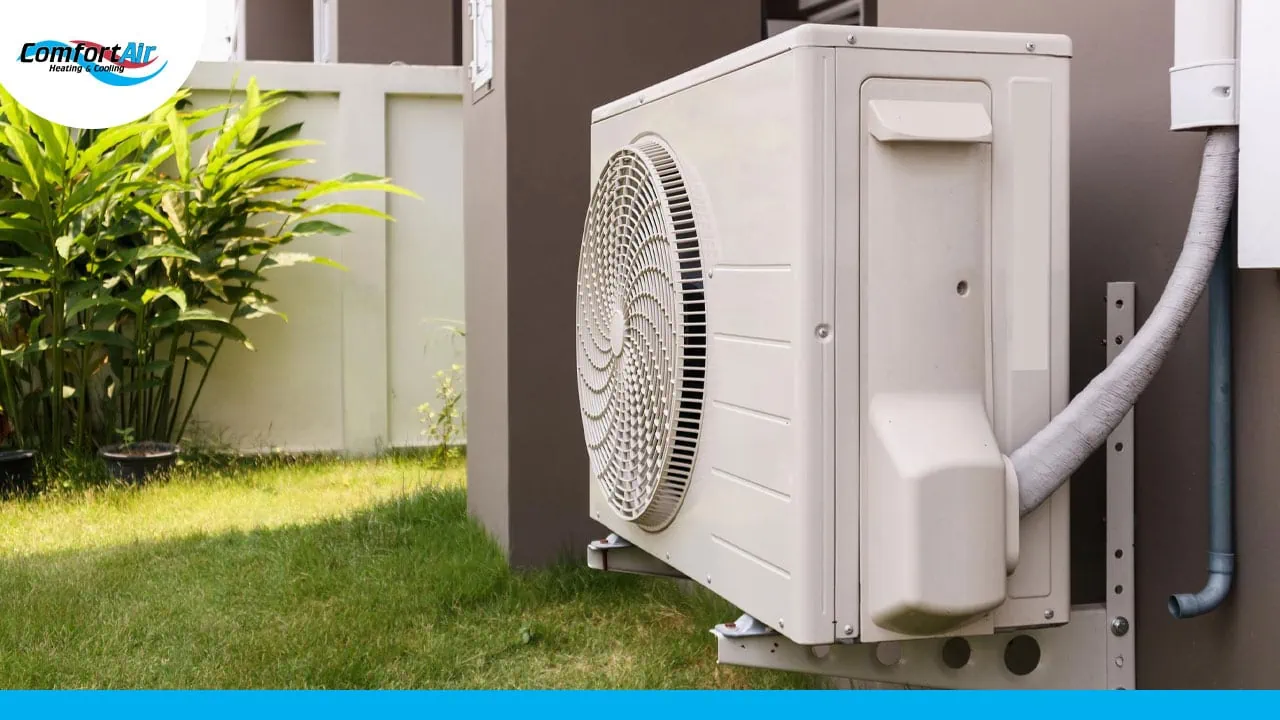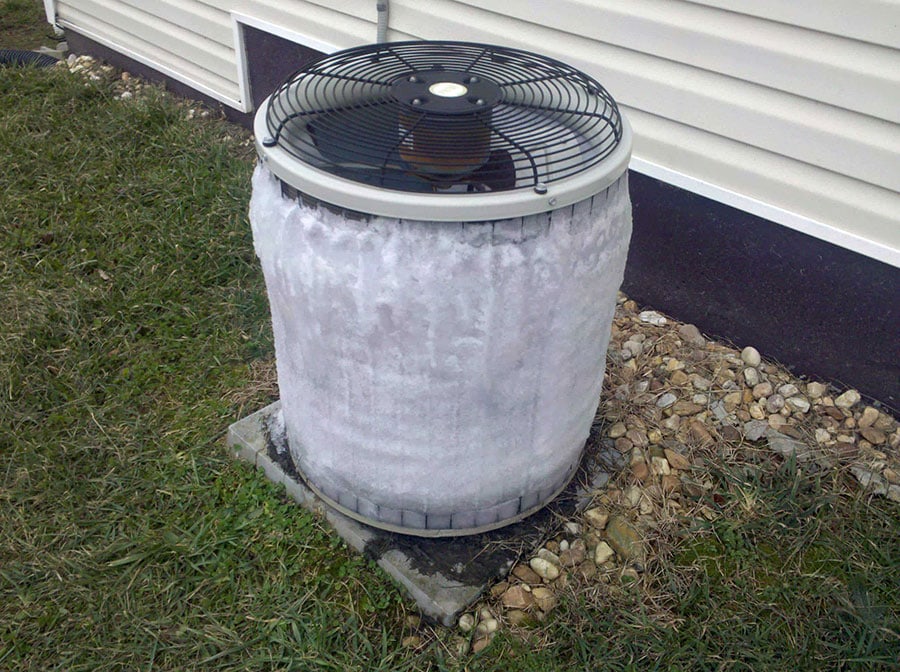
As temperatures soar during the scorching summer months, the last thing you want is for your air conditioning system to leave you sweating it out. One common issue that homeowners often encounter is the freezing up of their AC system and coils. This not only compromises the efficiency of your cooling system but also leads to discomfort when you need relief from the heat the most.
In this blog post, we'll unravel the mystery behind why your air conditioning coil keeps freezing up and provide you with insights into prevention and solutions to keep your cooling system running smoothly.
As the mercury rises and the summer sun blazes outside, the cool oasis of your air-conditioned home becomes an essential sanctuary. But what happens when this haven of comfort suddenly turns against you, leaving you to sweat it out? One of the culprits behind this unwelcome twist is the mysterious phenomenon of your air conditioning units' coils freezing up. In this section, we'll dive into the heart of this common issue, shedding light on its impact on cooling efficiency, the inconveniences it brings during the scorching summer months, and most importantly, the need for a swift and effective solution.
Picture this: a sweltering summer day, and you've just walked into your home, eagerly anticipating the refreshing blast of cold air from your trusty air conditioning system. However, instead of the anticipated cool air, you're greeted with tepid air or, worse, no airflow at all. It's a frustrating scenario that's all too familiar to many homeowners. So, what's causing this chilling inconvenience? The answer lies in the freezing of your AC coil.
The air conditioning coil, also known as the evaporator coil, is a crucial component of your cooling system. It's responsible for removing heat and humidity from the air, ensuring that the air blown into your home is both comfortable and refreshing. However, when this coil freezes up, it throws a wrench into the entire cooling process. Condensation on the coil accumulates and solidifies into ice, obstructing the normal flow of air. The consequences of AC freezing are twofold: reduced cooling efficiency and a rise in discomfort levels for you and your family.
The impact of a frozen coil or AC coil can be felt beyond the immediate discomfort of warm air blowing out of your vents. Your cooling system is forced to work overtime, struggling to maintain the desired temperature. This extended operation not only consumes more energy but also places additional strain on the components of your air conditioning unit. Over time, this can lead to increased wear and tear, potentially resulting in the need for costly repairs or even premature system failure.
Moreover, the inconvenience of a frozen AC unit or coil is particularly pronounced during the hottest months of the year. Just when you're seeking refuge from the blistering heat, your cooling system falters, leaving you in the lurch. It's a situation that can quickly escalate from a mere annoyance to a full-blown discomfort, affecting your daily routine and overall well-being.
Recognizing the urgency of this issue, it becomes clear that a solution is not just desirable but imperative. Fortunately, understanding the causes behind air conditioning coil freezing can empower you to take proactive measures to prevent it from occurring. By addressing these underlying factors and ensuring proper maintenance, you can not only restore your cooling system's efficiency but also guarantee a consistently comfortable indoor environment throughout the summer.
Spotting a frozen AC coil isn't rocket science. There are clear signs that indicate this issue. Reduced air flow, warm air blowing out of the vents, and frost buildup on the coil are telltale signs that something's not right. Identifying these symptoms early can save you from discomfort and costly repairs down the line.
Several factors can contribute to your air conditioning coil freezing up:
Refrigerant is the lifeblood of your cooling system. If it's running low, it can lead to decreased pressure and temperature in the coil, causing it to freeze.
Restricted airflow due to dirty filters, blocked air vents, or malfunctioning fans can hinder the coil's ability to regulate its temperature, leading to freezing.
A thermostat set too low might cause your system to run for longer periods than necessary. This extended operation can lead to freezing.
Refrigerant leaks not only compromise the cooling process but can also disrupt the coil's temperature regulation, potentially causing it to freeze.
A malfunctioning defrost control can result in ice buildup on the coil. This not only obstructs airflow but can also cause further damage to the system.
If the condensate drain is clogged, water can accumulate and freeze on the coil. This not only contributes to freezing but can also damage the system over time.
Preventing air conditioning coil freezing requires a combination of routine maintenance and proactive measures:
Regular AC unit maintenance is paramount. This includes cleaning or replacing air filters, checking refrigerant levels, and ensuring air ducts have proper airflow. A well-maintained system is less likely to run into freezing issues.
Insulating exposed ductwork and improving home insulation can help prevent temperature imbalances that contribute to coil freezing. Proper insulation ensures that your cooling system works efficiently.
Setting your thermostat to a reasonable temperature can prevent excessive cooling of frozen coils, which in turn reduces the likelihood of the coil freezing up.
When in doubt, seek professional HVAC system inspection. Trained technicians can identify and rectify underlying issues that might be causing the coil to freeze.

Before reaching for the phone to call a professional, you can try a few troubleshooting steps:
If you have a frozen air conditioner evaporator coil, turn off the AC and let it thaw naturally. You can also expedite the process by using a fan. Remember, safety comes first!
Regularly changing dirty air filters ensures optimal airflow, which is crucial for preventing coil freezing. Make it a habit to replace clogged air filters regularly, as recommended by the manufacturer.
Check and clear the condensate drain regularly to prevent blockages that can lead to coil freezing. This simple step can go a long way in maintaining your system's efficiency.
While some issues can be resolved with DIY efforts, certain scenarios require the expertise of a professional HVAC technician. Refrigerant leaks, electrical problems, or complex mechanical issues fall into this category. When in doubt, it's best to call in the experts. Call Comfort Air.
A frozen air conditioning coil can throw a wrench into your summer comfort plans. However, armed with the knowledge of its causes, signs, and preventive measures, you can keep your cooling system running smoothly. Remember, addressing air conditioner freezing promptly not only ensures efficient cooling but also prevents potential damage to the system.
If you're facing persistent coil freezing issues, don't hesitate to reach out to Comfort Air, your trusted partner in HVAC solutions. As proud Rheem Pro Partners, we're here to help you enjoy your time at home. You can reach us at 813-413-1726. Let us help you enjoy a refreshing and cool home.